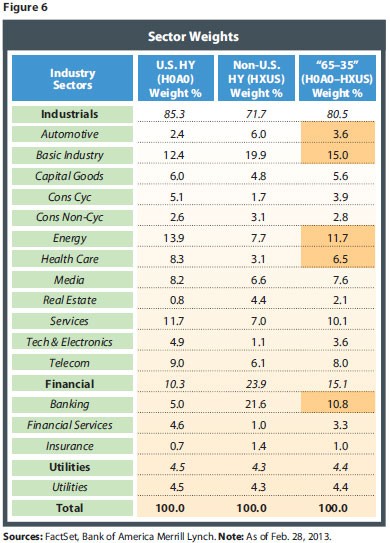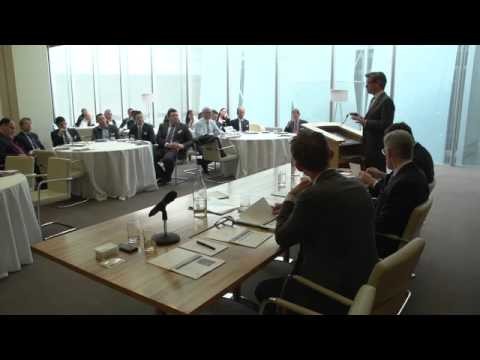Van Eck Global_1
Post on: 19 Июнь, 2015 No Comment

China’s Equity Markets in 2015 (6:11)
Video Transcript
China’s Equity Markets in 2015
China’s Equity Markets
DAVID LAI: I would like to give you an update about Chinese equity market. China Asia market already ranked number two, right after U.S. market in terms of the total market cap. So, it’s getting too important that global investor should pay attention to it. When referring to China market, there are a lot of confusion about it A-shares or N-shares. There are so many different share classes. However, to make it simple, we will just divide them into on-shore and off-shore. The on-shore market is the Asia A-share listing exchange in Shanghai versus the rest of the share class we’ll be listing in Hong Kong or U.S. as the off-shore market. The A-Share market right now is five times bigger than the rest of the other market in terms of market cap. And also, there are more than 2,200 share listing agent, which is giving a lot of choices for the investor. In recent months, China A-Share market has a really strong rally. The rate cut happened in November definitely helped lift up the sentiment. But somehow, we also have to remind ourselves that the A-Share market is 99% driven by the domestic money. So how the domestic investor think about the market is very important. Within the 99%, 80% of them are retail investors. So, a lot of people commenting about macro growth and even the economists saying from the western countries may not be 100% relevant to move the market. Currently, the valuation is around 15 times forward multiple. Compared to the historical peak of 42 times and even the average of the last ten years is about 20 times, the current valuation still seems quite decent.
2014 Performance Rally
LAI: The rally has been very strong in the past few months. The rate cut is one of them. But however, you may also think about alternative investment available for the retail investor. People used to invest a lot in the property market and also in the trust product or money-market fund. But somehow, if you think about it, property market at this moment, it’s no longer that attractive, given that the property price is weakening. So the urgency to buy another property is getting lower. And for the money market fund and the trust product, the current return is only like 3.5% to less than four percent, compared to their offering of seven to eight percent 18 months ago, is really less attractive. So that’s why more fund flow has been flowing into the equity market.
New Economy versus Old Economy
LAI: When analyzing China, a lot of investors have been paying attention to the old economy or traditional sectors. However, there are much more interesting stories happening in the upcoming new sectors. Example, like IT, healthcare, and consumer. Given that the policy shift has been emphasizing the domestic consumption, we think that these new key sectors will be the focus and growing faster in the near future.
State-Owned Enterprise Reform
LAI: State-owned enterprise reform is one of the top agenda among the government officials this year. We understand that a lot of industry, particularly the old economy industry, including financial and energy, is still dominated by the state-owned enterprise or government-owned enterprise. So, most of them will be running quite low efficiency and low profitability, and the government also understands that. So that’s why they have been pushing them and encouraging them to do some reform, including asset restructuring or asset spinoff, or even introducing investment scheme to the management of the state-owned enterprise. So in this area, we expect that a lot of old economy industry will be benefited from the SOE reform. And having said that, an investor should also remind himself that a healthy capital market is very important to carry out this kind of reform. So that’s why we expect the policy should be still very supportive to the equity market.
LAI: Another new theme is about e-commerce. After the listing of the Ali Baba, I think a lot of U.S. investor is already understand how big the e-commerce market in China is. But however, the story is not finished yet. Let’s say online shopping right now accounts for around ten percent of the total retail sales in China. But we think this kind of a level will continue to go up in the next few years’ time. And also, a more exciting story is happening right now in the mobile e-commerce space. Given that the penetration of the smartphone in China and also the 4G services officially launch in 2014, we expect that the mobile e-commerce space will be having a very fast growth in the next few years’ time.
IMPORTANT DISCLOSURE

The views and opinions expressed are those of the speaker and are current as of the video’s posting date. Video commentaries are general in nature and should not be construed as investment advice. Opinions are subject to change with market conditions. All performance information is historical and is not a guarantee of future results. For more information about Van Eck Funds, Market Vectors ETFs or fund performance, visit vaneck.com. Any discussion of specific securities mentioned in the video commentaries is neither an offer to sell nor a solicitation to buy these securities. Fund holdings will vary. All indices mentioned are measures of common market sectors and performance. It is not possible to invest directly in an index. Information on holdings, performance and indices can be found at vaneck.com .
Index returns are not Fund returns and do not reflect any management fees or brokerage expenses. Investors cannot invest directly in an Index.
Please note that Van Eck Securities Corporation offers investment products that invest in the asset class(es) included in this video. Principal risks of investing in China include, but are not limited to, political and economic instability, inflation, confiscatory taxation, nationalization and expropriation, market volatility, illiquidity, currency fluctuation and devaluation, actions taken by the Chinese government in the markets, less reliable financial information, differences in accounting, auditing, and financial standards and requirements from those applicable to U.S. issuers, and uncertainty of implementation of existing Chinese law.
Investing involves risk, including possible loss of principal. An investor should consider investment objectives, risks, charges and expenses of the investment company carefully before investing. Bonds and bond funds will decrease in value as interest rates rise. Please read the prospectus and summary prospectus carefully before investing.
No part of this material may be reproduced in any form, or referred to in any other publication, without express written permission of Van Eck Securities Corporation. © 2015 Van Eck Securities Corporation.
Van Eck Securities Corporation, Distributor
335 Madison Avenue, New York, NY 10017














